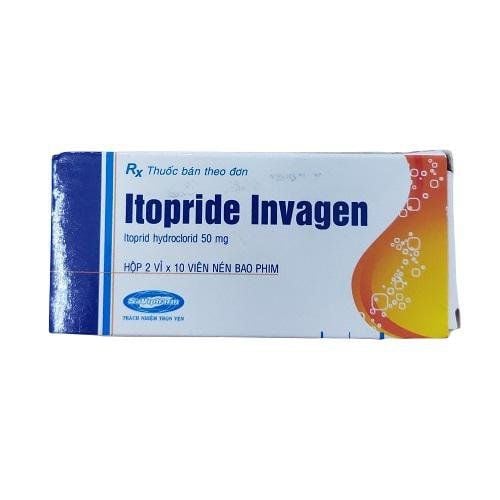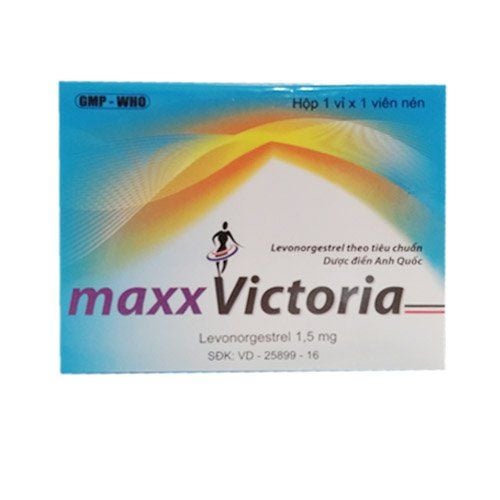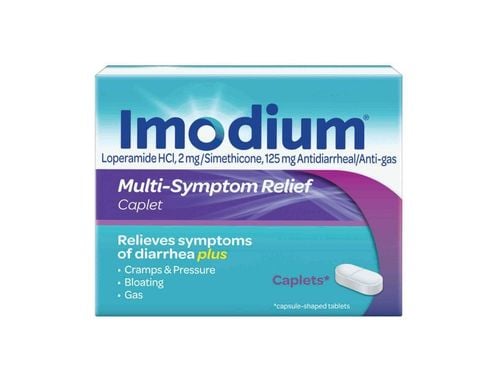This is an automatically translated article.
The article was professionally consulted with Doctor Dao Minh Phuong - Department of Medical Examination & Internal Medicine, Vinmec Central Park International General Hospital.Peristalsis plays an important role in the digestion and absorption of food by the body. So when bowel movements are changed, such as increased bowel movements, diarrhea can occur.
1. What is a bowel movement?
Peristalsis is the process of wave-shaped contractions to move and digest food in the body's digestive system. This process begins in the esophagus when food is swallowed, then moves to the stomach, small intestine and ends at the anus.Peristalsis plays an important role in the process of digestion and absorption of nutrients for the body. The role of peristalsis in each digestive organ is different, specifically as follows:
In the esophagus: Peristalsis plays a role in pushing food down to the stomach. In the stomach: Peristalsis conducts contractions to help grind food into smaller sizes for easy conversion into nutrients for the body to absorb. In the small intestine: The contraction of peristalsis in the small intestine consists of two stages, which are kneading contractions (segmental contractions) and pushing contractions (peristaltic contractions). This is the stage where food is transformed and most nutrients are absorbed. Over a period of 3 to 5 hours, new peristaltic contractions push the chyme from the duodenum to the ileocecal valve. The waste products will be peristaltic pushed down into the large intestine. When active, bowel movements often make sounds during the digestion of food, so there will be a continuous or intermittent stomach rumbling, produced when food and substances move in the sugar. Digest. Normally, to hear bowel movements, a specialized stethoscope is required.
Peristalsis plays an important role in the absorption and digestion of food, so increased intestinal motility is considered a sign of digestive diseases such as ulcerative colitis, gastritis, and gastritis. Crohn's disease and is the most common cause of diarrhea.
2. Increased intestinal motility easily causes diarrhea
2.1. What is increased intestinal motility? Normal bowel movements have a frequency ranging from 4 to 32 times/minute. If the frequency is abnormally higher than 32 times per minute, accompanied by loud sounds such as stomach rumbling, you may have an increased bowel movement.Increased intestinal motility is a sign of increased bowel activity, which occurs when the muscles contract the intestinal wall more and faster, producing loud rumbling sounds without the use of a dedicated stethoscope. can be heard. Some other symptoms of increased bowel movements can be mentioned as follows: Nausea, vomiting, constant farting ...

Tăng nhu động ruột khiến người bệnh liên tục xì hơi
Crohn's disease: is a chronic transmural inflammatory bowel disease that can occur anywhere on the gastrointestinal tract from the mouth. to the anus, mainly in the colon and ileum. Patients with this disease have increased intestinal motility, increased intestinal contractions, thereby causing symptoms of diarrhea, vomiting, fever, abdominal cramps, blood in the stool, lumps that appear when touching the abdomen. Ulcerative colitis: An inflammatory bowel disease (IBD) that occurs in the colon and rectum. Ulcerative colitis affects the innermost protective lining of the colon and rectum. Patients with ulcerative colitis often have typical symptoms such as abdominal pain, loss of appetite, nausea, vomiting, diarrhea and increased bowel movements. Gastroenteritis: A disease related to inflammation and irritation of the digestive tract that can be caused by viral or bacterial infections from food or water. Symptoms include abdominal cramps, nausea, vomiting, diarrhea, increased intestinal motility... Gastroenteritis can also be caused by overuse or abuse of certain drugs such as corticosteroids. , nonsteroids (NSAIDs)... Gastrointestinal bleeding: Is one of the causes of increased gastrointestinal motility. Symptomatic GI bleeding varies depending on the severity of the bleeding in the gastrointestinal tract, which can range from undetectable leakage to acute, massive, and even life-threatening. network. The earliest symptoms of this disease are black and pungent faeces, increased intestinal motility, bloody diarrhea, abdominal distension, vomiting blood ... Celiac disease: Caused by the immune system Genetic mediators in the body for gluten intolerance, thereby leading to atrophic mucosal inflammation, villi atrophy and malabsorption. Patients with this disease often have symptoms of flatulence and persistent gas, abdominal pain, nausea, vomiting, weight loss, diarrhea, and increased bowel movements. Mechanical intestinal obstruction: As one of the causes of increased intestinal motility with typical symptoms such as abdominal pain, abdominal cramps, abdominal distension, constipation ... Causes of intestinal obstruction may be due to tumor, fecal tumor , the formation of scar tissue after surgery... Food sensitivities: Food sensitivities such as food intolerances, food allergies... can cause increased intestinal motility . In which food intolerance occurs because the body does not contain enough enzymes or specific chemicals needed for the digestion of a particular food. A food allergy is defined as an abnormal response of the body to certain foods. Irritable bowel syndrome is a functional disorder of the gastrointestinal tract with mainly colonic symptoms, these dysfunctions recur many times but no visible resolution lesions are seen. surgery or biochemistry in the intestine. Irritable bowel syndrome occurs according to the abnormal sensing mechanism of the gastrointestinal tract, altered intestinal tolerance (some segments of the intestine have reduced ability to withstand pressure from food) and motility disorders. intestine. The main symptoms of patients with irritable bowel syndrome are bloating, abdominal cramps, flatulence, constipation in case of decreased bowel motility and diarrhea in case of increased intestinal motility... leading to increased intestinal motility often accompanied by diarrhea. Therefore, the cause of diarrhea in patients with these conditions is increased intestinal motility.

Tăng nhu động ruột là một trong các nguyên nhân gây tiêu chảy
3. What to do when increasing bowel movements
Depending on the cause of increased bowel movements, there are different treatment measures. Some measures to temporarily stabilize bowel movements are as follows:Drink a glass of warm water as soon as you have symptoms of the disease, about 5 minutes after drinking you will feel more comfortable, because warm water has stabilizing effect on the gastrointestinal tract. Besides, you should drink enough water every day (from 1.5 to 2 liters) for the body. Build a moderate diet, eat slowly and chew thoroughly to avoid having a strong impact on bowel movements. Using 3 middle fingers, gently massage the abdomen along the colon and clockwise to help reduce bowel movements. However, if the bowel movement is not treated for a long time, it will cause discomfort for the patient and seriously affect health. Therefore, in case the condition is more severe with symptoms such as rectal bleeding, unexplained nausea and vomiting, diarrhea for a long time... you should go to medical facilities to be visited. accurate examination and diagnosis.
Currently, Vinmec International General Hospital is a prestigious address trusted by many patients in performing diagnostic techniques for digestive diseases, diseases that cause chronic diarrhea or Crohn's disease... Especially In particular, the screening techniques for stomach-colon cancer, gastric-colon polyps at Vinmec were performed using an Olympus CV 190 endoscope, NBI function (Narrow Banding Imaging - endoscope with narrow light frequency band) ) results in clearer images of mucosal pathology... Thanks to that, the doctor can make an accurate diagnosis and give a timely treatment plan. Not only has a system of modern equipment, Vinmec is also a place to gather a team of experienced doctors and nurses, especially, with a space designed according to hotel standards, Vinmec guarantees to bring to the best of life. Patient comfort, friendliness, peace of mind.
Please dial HOTLINE for more information or register for an appointment HERE. Download MyVinmec app to make appointments faster and to manage your bookings easily.













